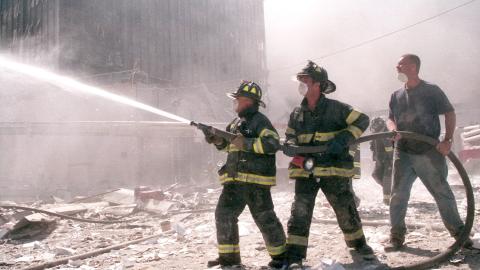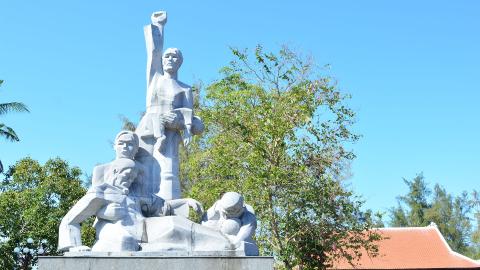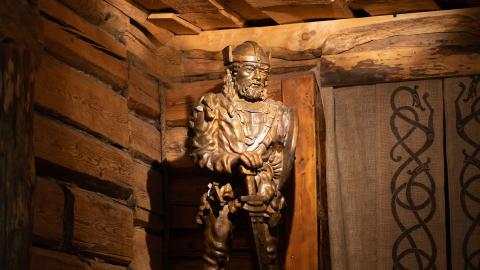Vikings didn’t just supply us with combs, compasses and the overall notion of hassling monks as a hobby. They also introduced a huge number of words into the English language that appear to have stuck and we still use constantly.
Angry Words
You won’t be too surprised to find that the bellowing, stab-loving, ransack-happy Vikings bequeathed a great many words relating to anger, hatred and fighting into the lexicon. ‘Anger’ for one, which came from the Old Norse angr or ǫngr meaning sorrow. ‘Berserk’ comes from the fearsome Berserker warriors, which translates as either ‘bear shirt’ or possibly ‘bare shirt’ due to their tendency to go topless (the origin is disputed). And without our Viking friends, we wouldn’t be able to say ‘hit’, ‘knife’ ‘club’, ‘gun’, ‘ransack’ or ‘slaughter’. Imagine that!
Happy Words
But don’t panic; it wasn’t just nasty, violent terms that the Vikings left behind. Plenty of frilly, fluffy, lovely words were added to English also. Like ‘happy’, which come from the Old Norse word heppinn (to be fortunate) plus possibly a bit of hap (meaning luck). Then there’s ‘sky’ which derives from the Norse word for cloud. Where would our beloved poets (and pilots) be without that one? Other joyous terms that were given to us include ‘glitter’, ‘freckles’, ‘skip’, ‘wing’ and ‘billow’
Useful Words
What’s your favourite day of the week? If, like most people, you said Thursday, then you have the Vikings to thank. Thursday comes from Þorsdagr or ‘Thor's day’, the good old god of thunder, who got a bit of the week all to himself. Plan to stand up in the near future? Again, you’d have a bit of trouble without the Norsemen, as they gave us the word ‘leg’ as well. And our conversations would be particularly painful without ‘their’, ’get’, ‘take’, ‘they’ and ‘though’ all of which have Norse origins.
Delicious Words
From the way they lustily grabbed enormous turkey legs and laughed heartily while devouring them (at least in the Viking movies I watched) it appears that Old Norse peoples were fond of their grub. So it makes perfect sense that they inserted a number of foodie words into our current dictionary. In fact, they introduced pretty much THE most important one. Cake. Which comes from the slightly less appetising Norse word kaka. And you couldn’t have a cake without egg, which also came from Norse. Other delightful, delicious words from our Viking pals include ‘steak’, ‘skate’, ‘whisk’, ‘scale’ and ‘scrape’.
Natural Words
I think it’s fairly safe to say that those Scandi types were quite fond of the outdoors life, what with their various voyages and adventuresome sagas. So you won’t be entirely surprised to find that lots of natural terms and phrases have a Norse origin. And you can’t get much more natural than ‘fog’, which derives from the Norse word for ‘storm’ or ‘spray’. And there are plenty of spray involved with geysers, taken from geysa meaning to gush, which we can all agree geysers are fairly good at. In the animal world, they have given us ‘gosling’, ‘bull’, ‘kid’, ‘troll’ and ‘reindeer’. And they’re even responsible for the stuff that comes out of animals. ‘Muck’, ‘dregs’ and ‘dirt’ all have a Viking origin. Nice!
For more articles about the history and culture of the Vikings, check out our Viking history hub.
















